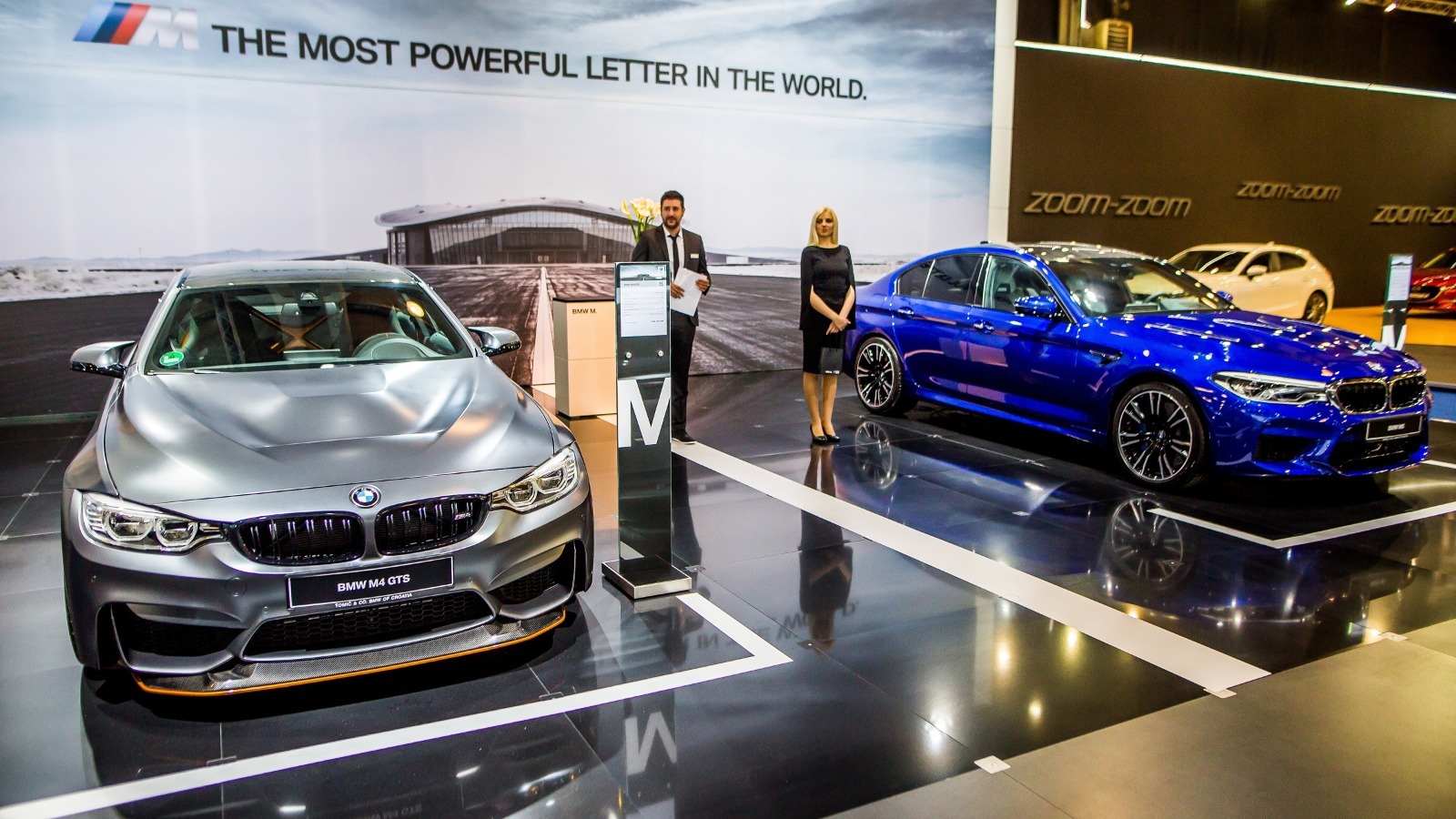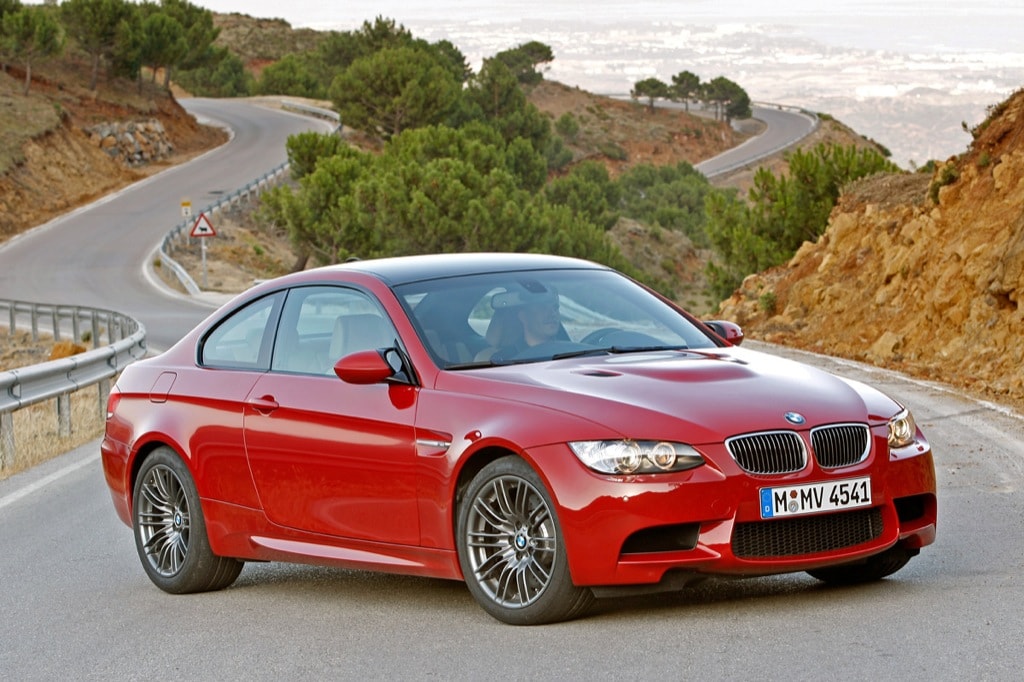When it comes to BMW's most successful motorsport event, we're diving into a world where speed meets precision and history blends seamlessly with innovation. If you’re a fan of high-octane racing, this is the story you’ve been waiting for. BMW has been a dominant force in motorsport for decades, and its achievements are nothing short of legendary. This article will take you on a rollercoaster ride through the most iconic moments, the drivers who made history, and the cars that became legends.
Now, before we dive deep into the heart of BMW’s motorsport success, let’s set the stage. Motorsport isn’t just about driving fast; it’s about strategy, engineering, and pure adrenaline. BMW has always been at the forefront of these elements, pushing boundaries and redefining what’s possible on the track. So, buckle up because we’re about to explore the events, the victories, and the sheer brilliance that makes BMW’s motorsport legacy unforgettable.
But why focus on BMW’s most successful motorsport event? Well, it’s not just about the wins—it’s about the impact. This event didn’t just put BMW on the map; it solidified the brand’s reputation as a powerhouse in the world of racing. It’s a tale of triumph, resilience, and innovation, and it’s one that every motorsport enthusiast should know. So, let’s get started!
Read also:Is Jason Beheler Married The Ultimate Guide To His Love Life And Relationships
Table of Contents
- The History Behind BMW's Motorsport Success
- Iconic Victories That Defined BMW's Legacy
- Drivers Who Made History
- Cars That Became Legends
- Technological Advancements That Changed the Game
- The Impact on the Motorsport Industry
- How BMW Engages Fans Worldwide
- What the Future Holds for BMW in Motorsport
- The Fan Perspective: Why This Event Matters
- Conclusion: Celebrating BMW's Motorsport Legacy
The History Behind BMW's Motorsport Success
BMW’s journey in motorsport is a story of evolution. From its humble beginnings to becoming a global powerhouse, the brand has consistently pushed the limits of what’s possible. The history of BMW’s motorsport success can be traced back to the early 1930s when the company first entered the racing scene. But it wasn’t until the 1970s that BMW truly began to make waves.
In the 1970s, BMW introduced the legendary 3.0 CSL, a car that would go on to dominate touring car racing. This was a turning point for the brand, as it marked the beginning of a new era in motorsport. The 3.0 CSL was a game-changer, setting the stage for BMW’s future successes. It wasn’t just a car; it was a symbol of what BMW could achieve when it combined engineering excellence with a passion for racing.
The Early Years: Building a Foundation
Let’s rewind a bit. In the early days, BMW faced stiff competition from established brands like Mercedes-Benz and Porsche. But BMW didn’t shy away from the challenge. Instead, the brand focused on innovation and engineering, creating cars that were not only fast but also reliable. This approach paid off, and by the late 1960s, BMW had established itself as a serious contender in the motorsport world.
One of the key factors in BMW’s early success was its commitment to driver development. The brand invested heavily in nurturing young talent, and this strategy paid dividends in the long run. Many of the drivers who started their careers with BMW went on to become legends in the sport, further cementing the brand’s reputation as a breeding ground for talent.
Iconic Victories That Defined BMW's Legacy
Talking about BMW’s most successful motorsport event wouldn’t be complete without mentioning the iconic victories that defined the brand’s legacy. One of the most memorable moments in BMW’s history came in 1983 when Nelson Piquet won the Formula 1 World Championship driving the BMW-powered Brabham BT52. This victory was a testament to BMW’s engineering prowess and its ability to compete at the highest level.
Another defining moment came in 1999 when BMW won the 24 Hours of Le Mans with the V12 LMR. This victory was particularly significant because it marked BMW’s first overall win at Le Mans since 1996. The V12 LMR was a masterpiece of engineering, combining power, speed, and reliability in a way that no other car could match at the time.
Read also:Lyracr0w0 Onlyfans Leaks The Untold Story Behind The Viral Sensation
The 24 Hours of Le Mans: A Milestone
The 24 Hours of Le Mans is one of the most prestigious races in the world, and BMW’s victory in 1999 was a major milestone in the brand’s motorsport history. The race is a test of endurance, and BMW’s success was a testament to the brand’s ability to perform under extreme conditions. The V12 LMR was a car built for the long haul, and its victory at Le Mans proved that BMW was a force to be reckoned with in endurance racing.
But it wasn’t just about the car. The team behind the V12 LMR played a crucial role in its success. From the engineers who designed the car to the drivers who piloted it, everyone involved in the project was committed to achieving greatness. This team effort was a key factor in BMW’s victory, and it set the standard for future successes.
Drivers Who Made History
No discussion of BMW’s most successful motorsport event would be complete without mentioning the drivers who made history. These individuals were not just talented racers; they were ambassadors for the brand, representing BMW on the world stage and inspiring fans around the globe.
One of the most iconic drivers in BMW’s history is Nelson Piquet. His victory in the 1983 Formula 1 World Championship was a defining moment for the brand, and it solidified BMW’s reputation as a leading engine manufacturer. Piquet’s partnership with BMW was a perfect match, combining the driver’s skill with the brand’s engineering excellence.
Other Notable Drivers
- Jochen Neerpasch: The man behind BMW’s motorsport program in the 1970s and 1980s, Neerpasch was instrumental in building the brand’s racing legacy.
- Mario Andretti: Another legendary driver who worked with BMW, Andretti’s partnership with the brand in the 1980s produced some of the most memorable moments in motorsport history.
- Tom Kristensen: A key player in BMW’s Le Mans victory, Kristensen’s skill and experience were invaluable to the team’s success.
Cars That Became Legends
The cars that BMW produced for motorsport are some of the most iconic in racing history. From the 3.0 CSL to the V12 LMR, each car was a masterpiece of engineering and design. These cars not only won races but also captured the imagination of fans around the world.
The 3.0 CSL, often referred to as the “Batmobile,” was a dominant force in touring car racing during the 1970s. Its distinctive design and powerful engine made it a favorite among fans and drivers alike. The V12 LMR, on the other hand, was a technological marvel that pushed the boundaries of what was possible in endurance racing.
Key Features of Iconic BMW Motorsport Cars
- 3.0 CSL: Aerodynamic design, powerful engine, and exceptional handling.
- V12 LMR: Advanced aerodynamics, V12 engine, and cutting-edge technology.
- M3 GTR: Lightweight construction, powerful V8 engine, and exceptional performance.
Technological Advancements That Changed the Game
BMW’s success in motorsport is not just about the cars and drivers; it’s also about the technological advancements that have driven the brand forward. From turbocharged engines to advanced aerodynamics, BMW has consistently pushed the boundaries of what’s possible in motorsport.
One of the most significant technological advancements in BMW’s history was the introduction of turbocharging in the 1970s. This innovation allowed BMW to produce more power from smaller engines, giving the brand a competitive edge in racing. Turbocharging became a hallmark of BMW’s engineering, and it continues to influence the brand’s approach to motorsport today.
The Role of Technology in BMW's Success
Technology has played a crucial role in BMW’s success in motorsport. The brand’s commitment to innovation has allowed it to stay ahead of the competition, producing cars that are not only fast but also reliable and efficient. This focus on technology has set BMW apart from its rivals and has been a key factor in the brand’s success over the years.
The Impact on the Motorsport Industry
BMW’s most successful motorsport event has had a profound impact on the industry as a whole. The brand’s achievements have inspired other manufacturers to push the boundaries of what’s possible in racing, leading to advancements in technology and engineering that benefit the sport as a whole.
BMW’s success has also had a significant impact on the fans. The brand’s commitment to motorsport has created a loyal following around the world, with fans eagerly following the brand’s progress in various racing series. This connection between BMW and its fans is a testament to the brand’s influence in the motorsport world.
How BMW Influences the Industry
Beyond its on-track success, BMW’s influence in the motorsport industry extends to its role as a trendsetter. The brand’s innovations in technology and engineering have set the standard for others to follow, and its commitment to sustainability in racing has paved the way for a new era in motorsport. BMW’s impact on the industry is a reflection of its dedication to excellence and its willingness to embrace change.
How BMW Engages Fans Worldwide
Fan engagement is a crucial aspect of BMW’s motorsport strategy. The brand understands the importance of connecting with its audience and has developed various initiatives to enhance the fan experience. From live streaming races to hosting fan events, BMW is committed to bringing the excitement of motorsport to its fans around the world.
One of the most successful initiatives in this regard is the BMW Fan Club, which provides fans with exclusive access to events, merchandise, and behind-the-scenes content. This program has helped to foster a sense of community among BMW fans, creating a loyal following that supports the brand both on and off the track.
Key Fan Engagement Strategies
- Live Streaming: BMW offers live coverage of its races, allowing fans to follow the action from anywhere in the world.
- Exclusive Events: The brand hosts fan events that provide unique experiences, such as track days and meet-and-greets with drivers.
- Social Media: BMW uses social media platforms to engage with fans, sharing updates, photos, and videos from races and events.
What the Future Holds for BMW in Motorsport
Looking ahead, the future of BMW in motorsport is bright. The brand continues to innovate and push the boundaries of what’s possible, and its commitment to sustainability in racing is a testament to its forward-thinking approach. BMW’s focus on electric and hybrid technology in motorsport is a reflection of its dedication to creating a greener future for the sport.
As the world of motorsport evolves, BMW is well-positioned to continue its success. The brand’s expertise in engineering and its passion for racing make it a formidable force in the sport, and its ability to adapt to changing conditions ensures that it will remain a dominant player for years to come.
The Rise of Electric Racing
One of the most exciting developments in BMW’s motorsport future is its involvement in electric racing. The brand’s participation in the ABB FIA Formula E Championship is a clear indication of its commitment to sustainability and innovation. BMW’s electric cars are not only competitive but also a reflection of the brand’s vision for the future of motorsport.
The Fan Perspective: Why This Event Matters
For fans of BMW and motorsport in general, the brand’s most successful motorsport event is more than just a race—it’s a celebration of passion, innovation, and excellence. It’s a reminder of what can be achieved when a brand combines its engineering expertise with a deep love for racing. This event matters because it represents the best of what BMW has to offer, and it inspires fans to dream big and aim high.


